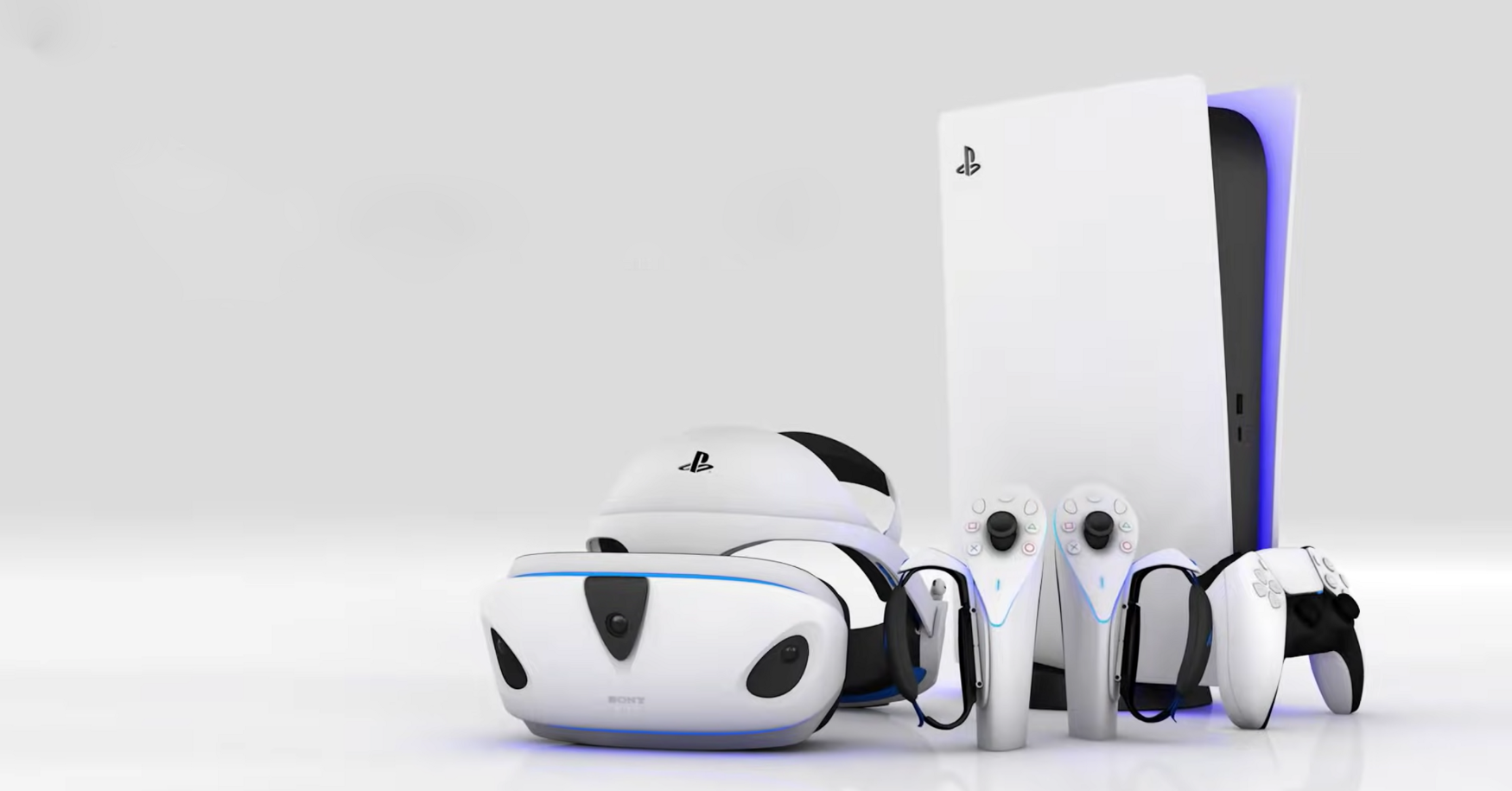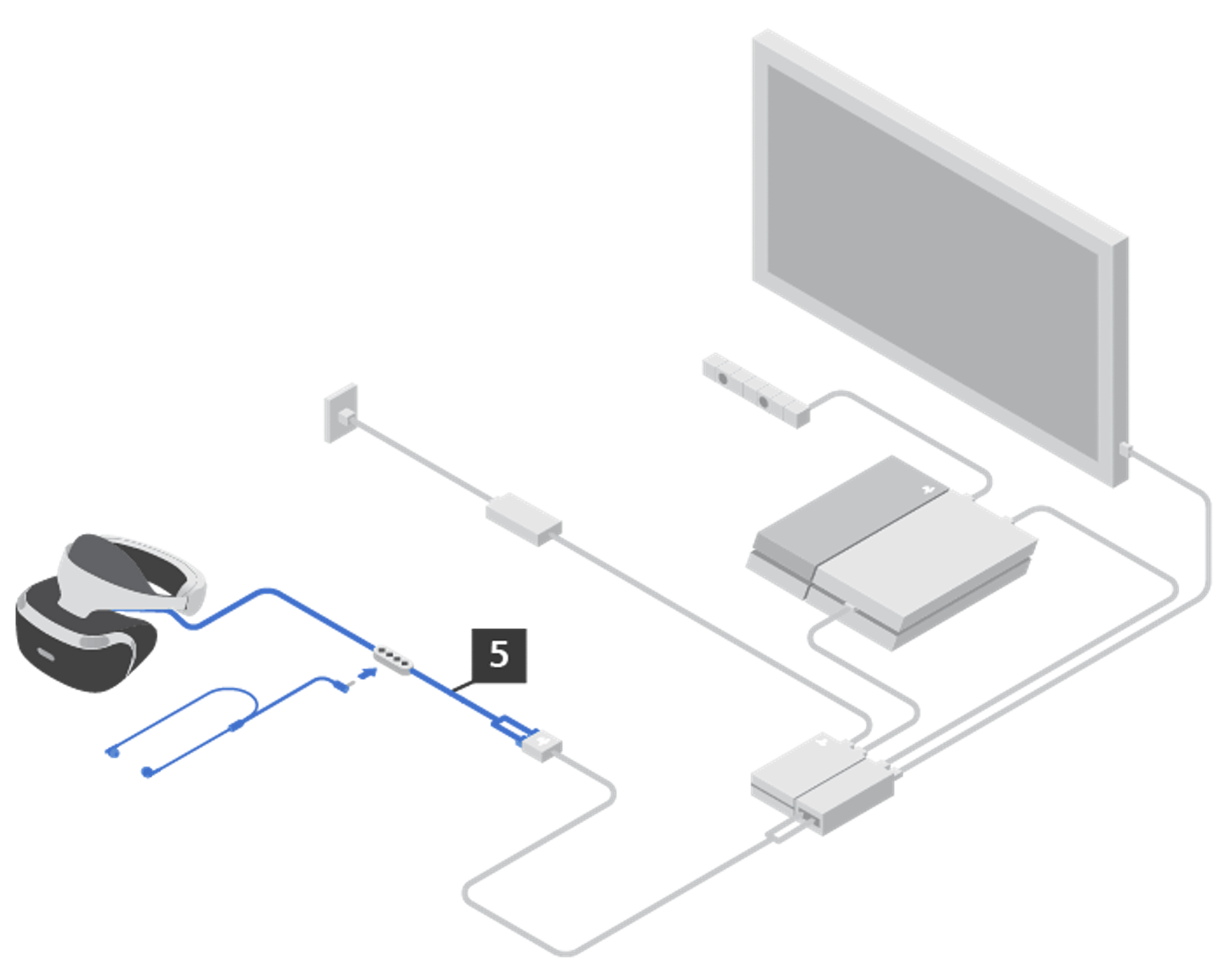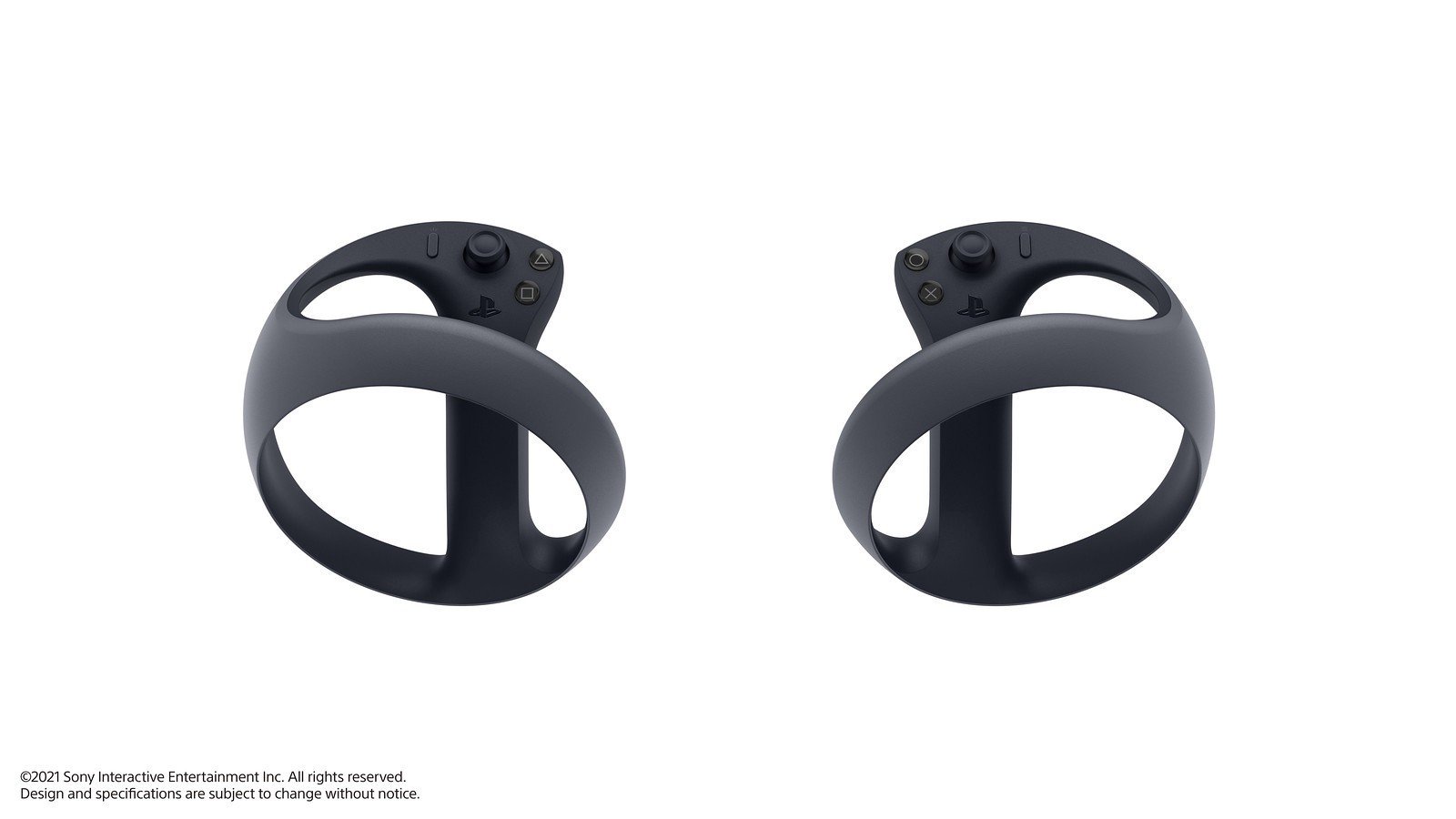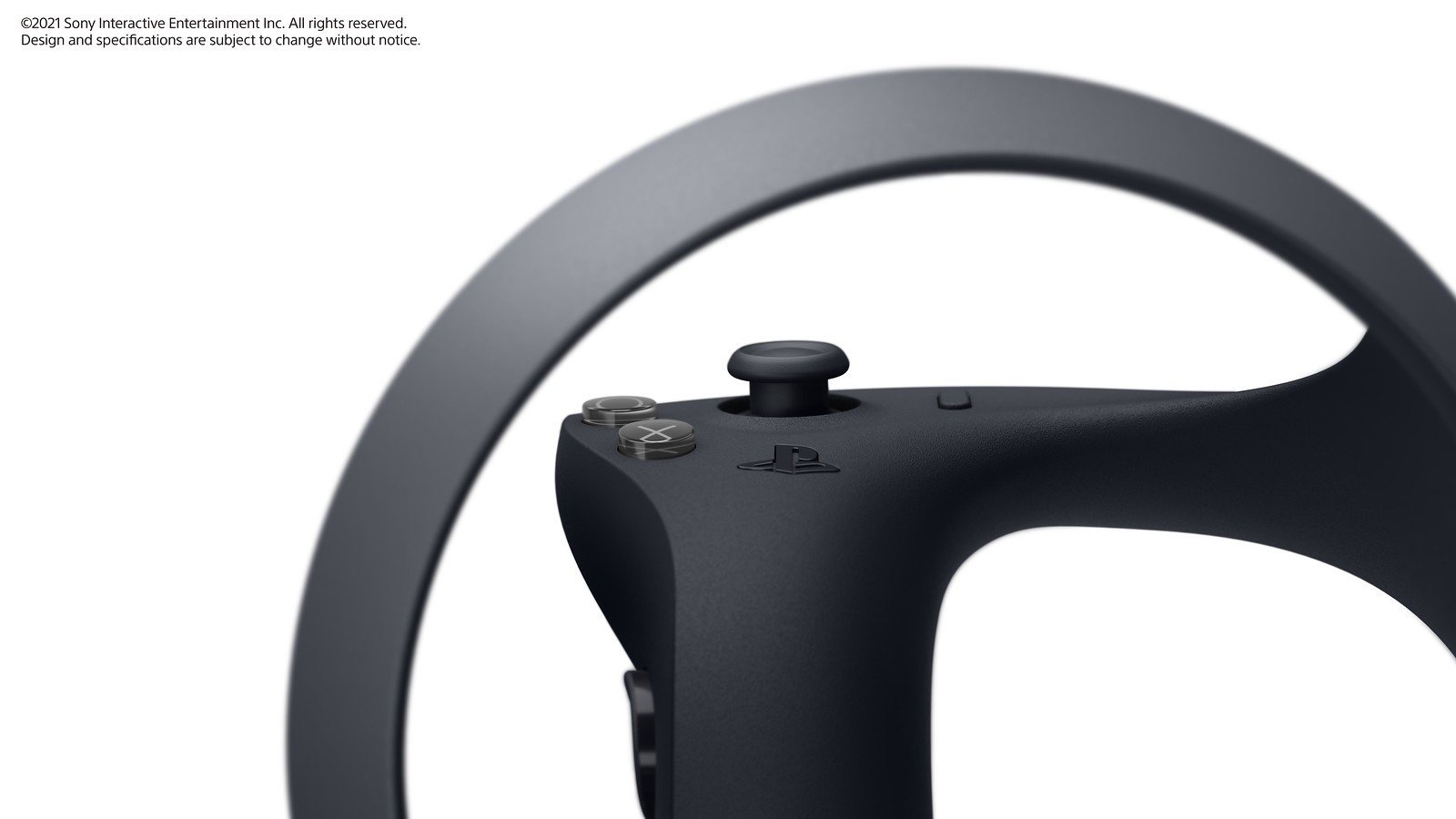Sony announces next-gen PSVR 2 is coming to PS5
But not in 2021
*Updated 23rd March 2021 to reflect new information on PSVR controllers*
For the past few years, the immersive industry has been waiting to see if Sony would continue the development of its VR tech, PlayStation VR. That wait is seemingly over. Sony announced in a blog post earlier this week that a “next-generation VR system” will be coming to PlayStation 5, “enabling the ultimate entertainment experience with dramatic leaps in performance and interactivity”, and that its commitment to virtual reality as a medium for games is “stronger than ever”.
Is this what PSVR 2 could look like? Concept by VR4Player.fr
The post from Senior Vice President of Platform Planning and Management, Hideaki Nishino, outlines what we can expect from the successor to PSVR, including details of a new controller.
Here’s a roundup of everything we know so far.
Single Cord Connection
A welcome update to PSVR 2 is that it will connect to PS5 with a single cord to “simplify setup and improve ease-of-use while enabling a high-fidelity visual experience”. This is a relief to anyone who has tried the existing PSVR headset which has multiple cables and adaptors that make for a complex setup process.
Sony / PlayStation — The original PS VR Headset connected to the PS4 with multiple cables and adaptors, which will hopefully be simplified with PSVR 2.
Improved Specs
Sony didn’t announce specifics about the specs of PSVR 2, but what we do know is that the company has taken on board lessons learned after the release of the original headset to improve resolution, tracking, input, and field of view.
The standard for consumer VR has been set pretty high by the Oculus Quest 2, so it will be interesting to see what Sony has to offer with its new VR system. There’s no information yet about the price bracket for this new headset, but if we consider the original model retails for around £260, we might expect it to come in at around £300 which would make it the same price as an Oculus Quest 2.
New Controller
Updated 23rd March 2021:
Sony unveiled the design for their next-gen VR controller for use with PS5 today, which are said to use Dual Sense-style adaptive triggers to recreate feelings such as firing a gun. Haptic feedback is aiming to be “impactful, textured and nuanced,” the company says.
“When you’re traversing through rocky desert or trading blows in melee combat, you’ll feel the difference, magnifying the extraordinary visual and audio experience that’s so central to VR.”
The controllers also appear to have USB-C charging ports, which allude to the fact they will have a non removable, rechargeable battery.
The company says the controllers will also come with some degree of ‘finger touch detection’, something it says will “detect your fingers without any pressing in the areas where you place your thumb, index, or middle fingers,”
Launch Date
Sony admitted that there is still a lot of development needed for the new VR system, but wanted to provide the early update to fans as the development community has started creating new worlds to explore in virtual reality.
The blog post confirmed that we won’t be seeing PSVR 2 in 2021, so we’ll be keeping our eyes peeled for an official release date.
Dev Kit
Off the back of this announcement, Sony Interactive Entertainment CEO, Jim Ryan, confirmed in an interview with GQ that developer kits for the device will be shipping soon. He declined to comment on any specifics surrounding developer support, whether it’s Sony’s own studios or any of their publishing partners, but confirmed that: “we will launch our new VR system with appropriate software support”.
The consumer virtual reality industry has come a long way since the release of PSVR back in 2016. The barriers to entry have been lowered, and Oculus has dominated the market with the release of the Quest and Quest 2 headsets. It left many VR enthusiasts wondering why it was taking so long for an update to PSVR.
This announcement demonstrates Sony’s commitment to virtual reality after months of downplaying the importance of VR, and implying it was no longer central to its plans. It’s great news for the industry and VR fans.





